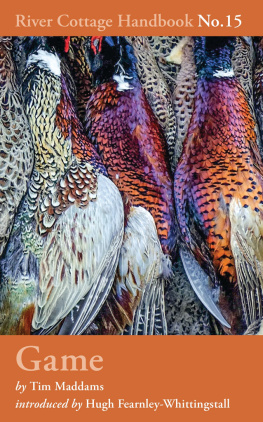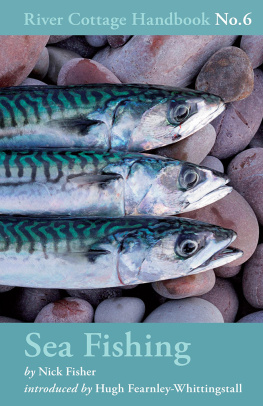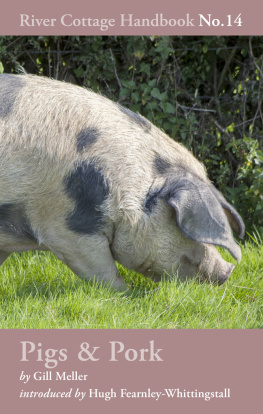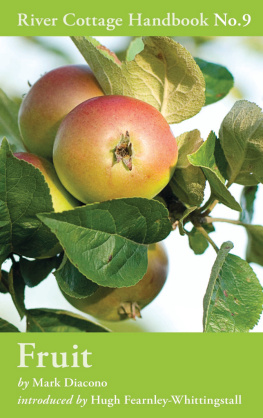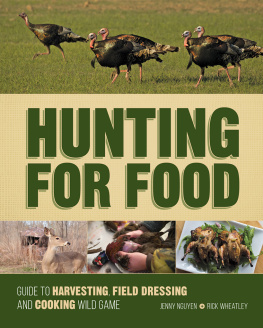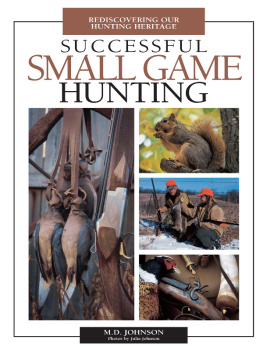Maddams - The River Cottage game handbook
Here you can read online Maddams - The River Cottage game handbook full text of the book (entire story) in english for free. Download pdf and epub, get meaning, cover and reviews about this ebook. City: London, year: 2018;2017, publisher: Bloomsbury Publishing, genre: Religion. Description of the work, (preface) as well as reviews are available. Best literature library LitArk.com created for fans of good reading and offers a wide selection of genres:
Romance novel
Science fiction
Adventure
Detective
Science
History
Home and family
Prose
Art
Politics
Computer
Non-fiction
Religion
Business
Children
Humor
Choose a favorite category and find really read worthwhile books. Enjoy immersion in the world of imagination, feel the emotions of the characters or learn something new for yourself, make an fascinating discovery.
The River Cottage game handbook: summary, description and annotation
We offer to read an annotation, description, summary or preface (depends on what the author of the book "The River Cottage game handbook" wrote himself). If you haven't found the necessary information about the book — write in the comments, we will try to find it.
The River Cottage game handbook — read online for free the complete book (whole text) full work
Below is the text of the book, divided by pages. System saving the place of the last page read, allows you to conveniently read the book "The River Cottage game handbook" online for free, without having to search again every time where you left off. Put a bookmark, and you can go to the page where you finished reading at any time.
Font size:
Interval:
Bookmark:


For Isaac and Flora
Bloomsbury Publishing
An imprint of Bloomsbury Publishing Plc
50 Bedford Square
London
WC1B 3DP
UK
1385 Broadway
New York
NY 10018
USA
www.bloomsbury.com
This electronic edition published in 2017 by Bloomsbury Publishing Plc
BLOOMSBURY and the Diana logo are trademarks of Bloomsbury Publishing Plc
First published in Great Britain 2015
Text Tim Maddams, 2015
Foreword Hugh Fearnley-Whittingstall, 2015
Illustrations Toby Atkins, 2015
Tim Maddams has asserted his right under the Copyright, Designs and Patents Act, 1988, to be identified as Author of this work.
All rights reserved
You may not copy, distribute, transmit, reproduce or otherwise make available this publication (or any part of it) in any form, or by any means (including without limitation electronic, digital, optical, mechanical, photocopying, printing, recording or otherwise), without the prior written permission of the publisher. Any person who does any unauthorised act in relation to this publication may be liable to criminal prosecution and civil claims for damages.
For legal purposes the constitute an extension of this copyright page.
No responsibility for loss caused to any individual or organization acting on or refraining from action as a result of the material in this publication can be accepted by Bloomsbury or the author.
British Library Cataloguing-in-Publication Data
A catalogue record for this book is available from the British Library.
Library of Congress Cataloguing-in-Publication data has been applied for.
ISBN: 978-1-4088-5832-5 (HB)
ISBN: 978-1-4088-9656-3 (eBook)
Project editor: Janet Illsley
Designer: Will Webb
Illustrator: Toby Atkins
Indexer: Hilary Bird
The publishers would also like to thank Sam Carlisle for his assistance.
While every effort has been made to ensure the accuracy of the information contained in this book, in no circumstances can the publisher or the author accept any legal responsibility or liability for any loss or damage (including damage to property and/or personal injury) arising from any error in or omission from the information contained in this book, or from the failure of the reader to properly and accurately follow any instructions contained in the book. The recipes supplied in the book are for personal use only. No recipe may be used for commercial purposes without the express permission of the author.
www.rivercottage.net
To find out more about our authors and their books please visit www.bloomsbury.com where you will find extracts, author interviews and details of forthcoming events, and to be the first to hear about latest releases and special offers, sign up for our newsletter.
Contents
All meat used to be game . Ten millennia ago, every ounce of animal protein consumed by humans was hungered for, hunted down, hard won. It wasnt until people began farming animals that a distinction could be drawn between wild and farmed meat. We bred our domesticated livestock over centuries to be fat, slow, succulent and, above all, abundant. One consequence of our success in this venture is that game now exists only on the fringes of our diets. Even the most committed and adventurous of carnivores is likely to eat far more farmed meat than wild. And in that process the taming of our tastes, if you like we have lost something.
We are so used to the pale, mild, well-fatted flesh of domesticated birds and beasts that game, dark and lean and richly flavoured, can come as a bit of a shock. What can also be shocking is that game so often arrives back from a shoot, or on the butchers counter, even sometimes at the table, too looking like what it is: a dead animal. If youre used to chops, sausages, mince and chicken breasts, its an eye-opener to behold a row of pigeons in their shiny grey feathers, or a muddy-furred rabbit, as the raw ingredient of your dinner; or indeed to be presented with that rabbit roasted on your plate skinned and headless, but with its limbs and distinctive body shape still much in evidence.
For some, this is a real problem. Many consumers are comfortable only with food that is designed and controlled by the hand of man and sanitised, if not outright disguised, before it reaches the table. In fact, for many, the higher the level of intervention, the more processing and polishing involved, the greater the trust placed in the food. But for some of us, the opposite is the case. With meat, in particular, the less it has been interfered with, both during its life and after its death, the better. I count myself in this camp, and so does Tim Maddams.
Anyone who loves meat, and has no ethical objections to eating it per se, will still come up against all kinds of problems when buying it in practice. The poorest levels of animal welfare are still represented on our shop shelves in factory-farmed pork, for instance. And even if you stride firmly to the opposing end of the spectrum and choose organic meat raised in the highest welfare systems, you cant deny that those animals have still lived lives hedged and hemmed in by humans. Wild game (but not reared game) offers an alternative because it is plucked from the midst of a natural, instinctive existence. It would be disingenuous to say that we dont still shape the environment of those creatures to some extent, either deliberately or otherwise, but wild game animals and birds live in a state of freedom that farmed animals can never achieve.
That is just one reason why I like game meat and why I would like to see it better understood and more widely consumed in the UK. We can nourish ourselves perfectly well without meat if we choose to do so, but if we are to end an animals life in order to satisfy our hunger, surely snatching that animal in a split second from a natural existence is about the best and most humane way to do it.
There are many other reasons to celebrate game, not least the fact that it offers a broad and varied range of delicious tastes and textures. Animals that have grown on a truly wild diet have flesh imbued with all sorts of herby, rich, sweet and pungent flavours. The leanness of game is hugely appealing in a world where our diets are dominated by fat and sugar. And there are the benefits of higher omega-3 levels in creatures that have eaten a diet rich in grass and greens, as opposed to grains.
As with any meat, game does not come without a side order of thorny issues. The quick, clean dispatch of an animal or bird in the wild cannot always be guaranteed, for instance. And there is the knotty problem of game that is not truly wild the pheasants and partridges that are fed and fattened by gamekeepers so that they may be driven deliberately over waiting guns. Is this better than being raised in a farmyard and trucked to an abattoir? In the end you must make up your own mind about this, and the other ethical issues relating to game. In this book Tim offers you the information you will need to do so, alongside his own frank opinions on the matter. He does not shy away from the complex questions that surround meat-eating in general, and game-eating in particular, and I admire his honest and thoughtful writing on the subject.
Ive had the great pleasure to work with Tim in the kitchen, but also to shoot and fish with him. His infectious enthusiasm and energy are coupled with some fiercely held principles: hes someone who takes his food, its provenance and its welfare, very seriously indeed. He has that quality so many good hunters share: a genuine fascination with, and respect for, the prey animal. And, for Tim, that fascination and respect extend into the kitchen.
Font size:
Interval:
Bookmark:
Similar books «The River Cottage game handbook»
Look at similar books to The River Cottage game handbook. We have selected literature similar in name and meaning in the hope of providing readers with more options to find new, interesting, not yet read works.
Discussion, reviews of the book The River Cottage game handbook and just readers' own opinions. Leave your comments, write what you think about the work, its meaning or the main characters. Specify what exactly you liked and what you didn't like, and why you think so.

